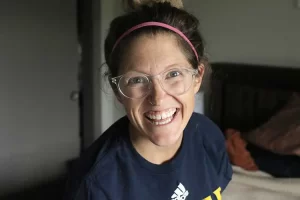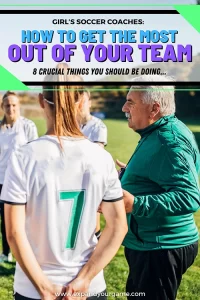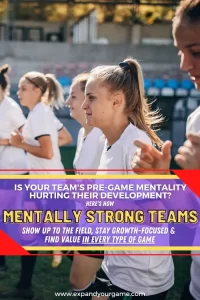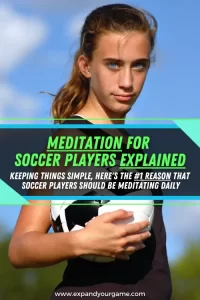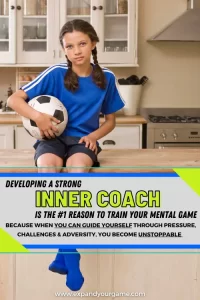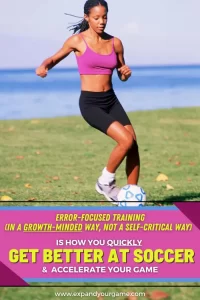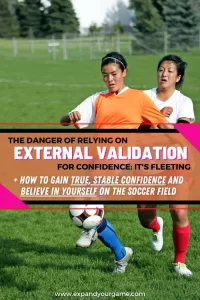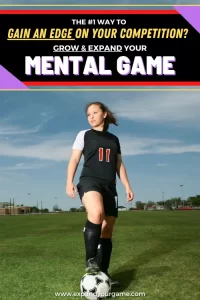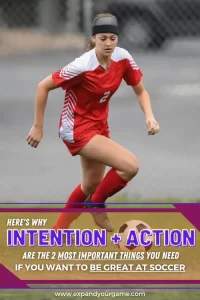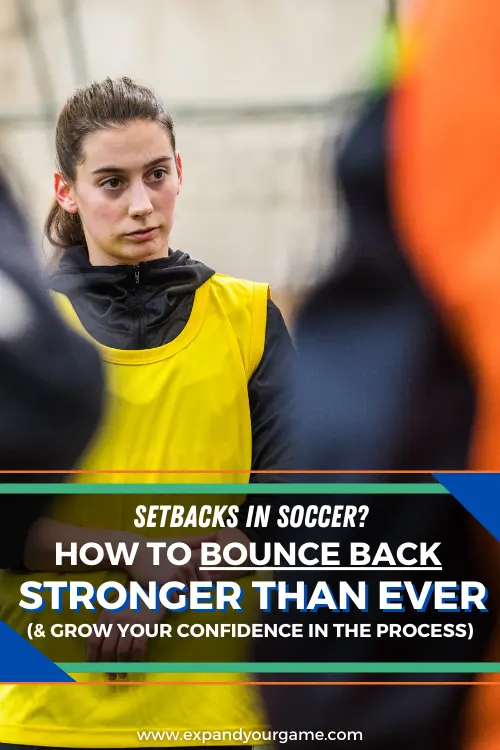
Bounce back from what you ask? Well, have you found yourself on the bench lately instead of in the starting lineup? Did you get cut at high school soccer tryouts, or not make the team you expected? Are you getting less playing time than you think you deserve? Did you experience an injury and are struggling to get back to your previous level of play?
This Post Contains:
Rising above setbacks requires immense personal strength and resilience in soccer. To bounce back and overcome obstacles, players need self-awareness and a growth-minded perspective so that they are not actively resisting the situation (meaning refusing to accept what happened).
Learning to focus on controlling the controllable and not fixating on the stuff you can’t change is what will grow your resiliency skills and help you overcome the situation. And BENEFIT FROM IT. When soccer players are able to shift their views and reframe things, disappointing situations in soccer can actually turn out to be very impactful, motivating experiences that completely change the course of their soccer career.
{Related read: The best mindset of an athlete? Learning to LOVE THE STRUGGLE}
Setbacks can inspire players to take action and work harder than they ever have, taking their soccer game to entirely new levels and becoming mentally tougher in the process. When players do not accept setbacks as fixed and permanent situations, they have the potential to become an EVEN BETTER, STRONGER version of the player that they were before.
soccer Is 90% Mental
So what are you doing to train that part of your game?
Introducing the Mindset Mastery Academy
A 10-week 1:1 mental skills mentorship experience for female soccer players
It's OK to feel disappointment when setbacks arise

One of the best soccer examples to bring up here is Crystal Dunn of the USWNT. In 2015 she was the last player cut from Jill Ellis’s World Cup roster and struggled in the aftermath, watching her teammates play to victory and become World Champions while she sat at home. It was extremely difficult, but after some time she was able to gain perspective on the situation and went on to:
- win the NWSL MVP that same year
- make the United States Women’s Olympic soccer team in 2016
- play for Chelsea FC in 2017
- lead the North Carolina Courage to a NWSL title in 2018
- make the World Cup roster in 2019 and help them to their 4th World Champion title
The struggle, the feelings of disappointment and the grief: these are all important pieces of the process when it comes to gathering strength and creating the motivation and drive to bounce back with resilience in soccer. Crystal had to go through the whole process in order to come out stronger and mentally tougher on the other side. But it was the best thing that every happened to her career, in hindsight.
In a 2019 article with Sports Illustrated, Dunn’s husband Pierre Soubrier says, “That’s really also part of the message and the learning experience. How sad and how frustrated and how pissed off she was at that time, but looking back now at how much good has this one thing done on the professional level and on a personal level. It’s just been great. A blessing.”
Grow your confidence through preparedness.
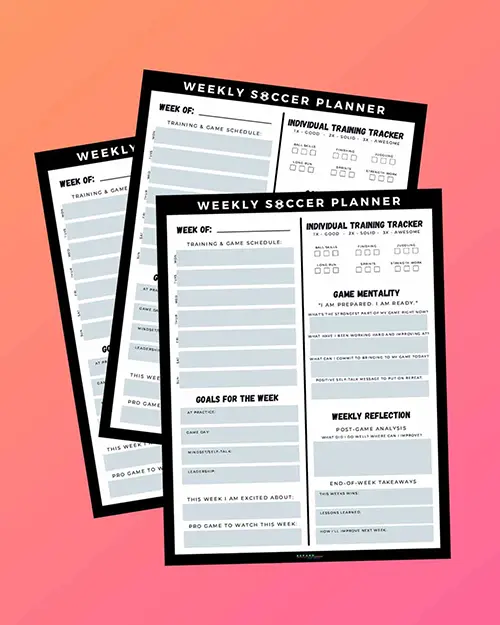
Subscribe to our email list to
Get your FREE Weekly Soccer Planner!
We respect your privacy. Unsubscribe anytime.
Gaining perspective
Reframing disappointing situations as opportunities for growth and being able to bounce back is something that many of the greats have in common. No professional soccer star has ever gotten to the top without an obstacle or two (or 100+) in their way.
"The obstacle in the path becomes the path. Never forget, within every obstacle is an opportunity to improve our condition."
Ryan Holiday, The Obstacle Is the Way
If you have experienced a setback and are looking to bounce back in soccer, the secret is understanding that what becomes of the situation is completely up to you. It’s all in your hands, and it all starts with what perspective you CHOOSE to have.
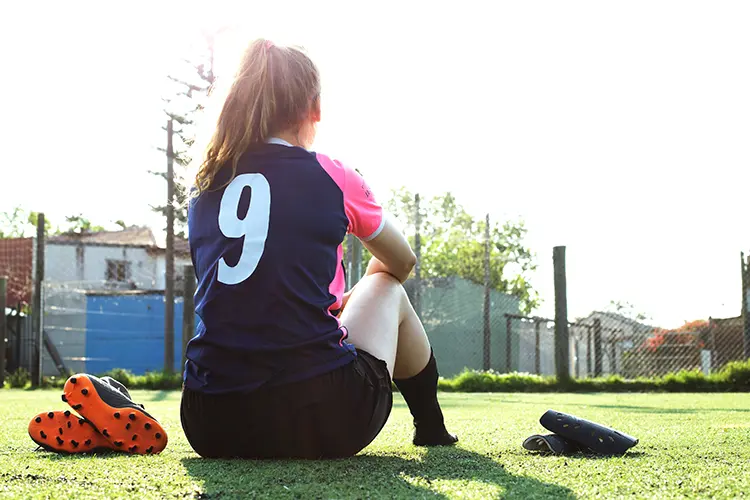
Setbacks are pivotal moments in your soccer career, they are moments that will define what type of athlete you are. And what type of person. You are the only one who can choose to overcome the situation and bounce back stronger than before. It’s up to you to CHOOSE a perspective of resilience in soccer, to CHOOSE to use this situation to become a stronger, fitter, smarter player, to CHOOSE to get invested and get better at soccer.
{Related read: Here’s the NUMBER ONE thing you can do to get better at soccer}
"The impediment to action advances action. What stands in the way, becomes the way."
Marcus Aurelius
Caught up in self-defeating thoughts
While it’s OK to feel these feelings, it’s not super helpful to get STUCK on them. When players spend a lot of time with their negative thoughts, their game suffers greatly and their confidence takes an even further hit, pushing them away from being able to overcome and grow from the setback.
With the right perspective you can gain resilience in soccer. With the right perspective, difficult situations can be transformational and eye-opening. With the right perspective, obstacles can be extremely effective motivational tools, having a positive long term impact on your soccer game.
No longer in the starting lineup
Self-reflection is an important tool you can use to help you gain perspective on the situation. Self-reflection can help you switch gears, bounce back and be better than before. Let’s look at the example of not being in the starting lineup and work out how you might reflect to gain some perspective.
{Related read: How self-reflection can help you get REALLY GOOD at soccer}
Look at the situation objectively: is there a reasonable explanation for what happened? For example: How was your attendance at training this week? Have you been out for illness or injury? Have there been any tactical elements that you have been struggling with? Also, consider the position you play, are you competing with multiple, talented players for the same spot?
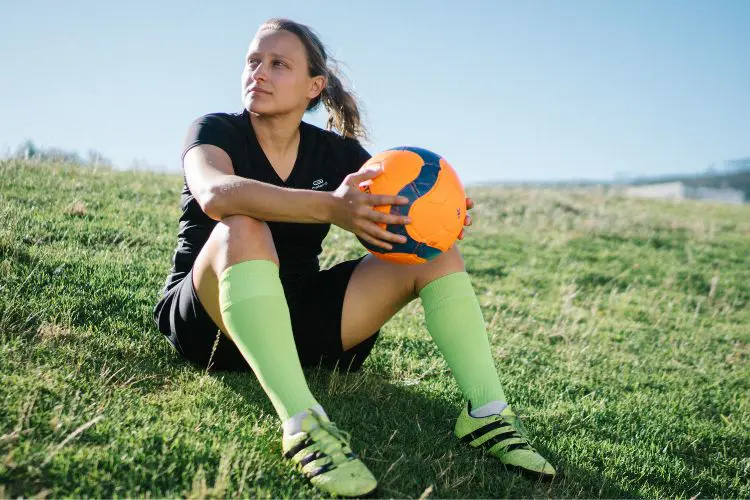
- how is your intensity on the field, your sense of urgency on transition?
- your creativity, your movement off the ball?
- your situational awareness?
- your work-ethic?
- your fitness level?
- are you dependable on the defensive side of the ball?
- do you make a difference in the game when you are on the field?
- do you open up opportunities when attacking?
- what is your conversion rate in front of the goal?
- how is your leadership?
- your attitude and commitment level?
- your growth mindset? are you invested in learning and gaining knowledge?
Struggle is necessary for improvement
"The things which hurt, instruct."
Benjamin Franklin
If you never have to face hard moments, then you never are able to practice working your way out of them. If you never face hard moments, you are holding yourself back from gaining the CRUCIAL skill of mental toughness. And mental toughness is a necessity if you plan on going all the way and playing soccer at elite levels.
Valuing healthy competition
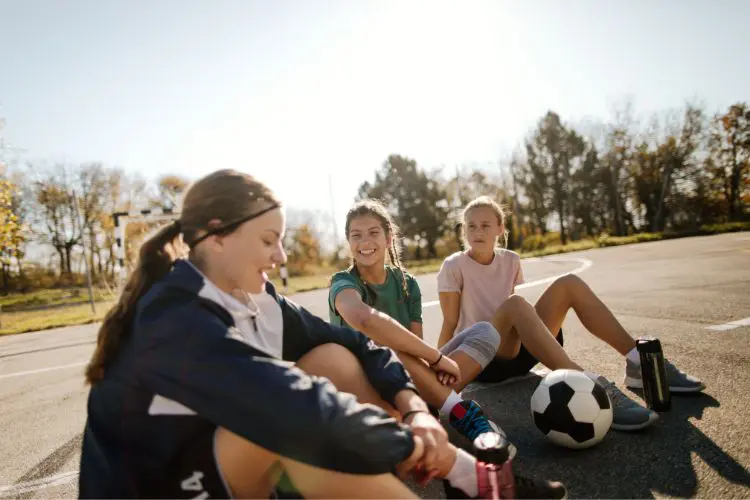
You’ll grow because you’ll be in a situation where you’ll have to work hard to keep up. You’ll have to put in the time, energy and effort to improve. You’ll have to figure out how to do things quicker, sharper and better than before. You’ll have to overcome the challenge of working for your spot.
And if you can support your teammate, encourage her and be her biggest cheerleader all WHILE COMPETING WITH HER – you are also going to grow in your leadership and relational skills which will level up your game EVEN MORE.
How to turn a setback into motivation
One of the questions that often comes up, especially when we are feeling really bad, is HOW do we do this actually? How do we reframe a setback and use it to fuel motivation and growth? How do we shift our mindset so that, instead of being negative about the situation, we are instead empowered by it and bounce back? How do we get mentally tough enough to handle it?

Talking to your soccer coach
If your situation is related to decisions your coach made (rosters, playing time, etc.) instead of trying to guess and make assumptions, go straight to the source and ask. While it might be hard to have this conversation with your coach, it’s a very important thing to be able to do when comes to taking responsibility for your development. Having a conversation with your soccer coach shows that you care and that you are invested and truly want to improve.
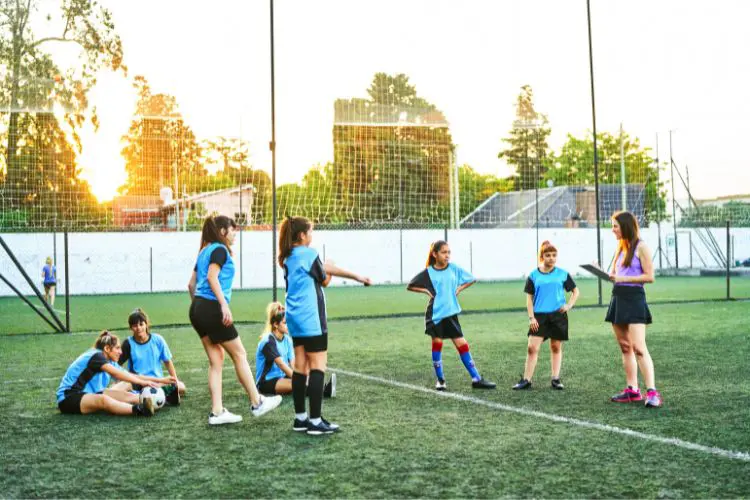
- Can you help me understand why I did not start this week’s game?
- What specific things can I work on, on my own, to improve for next week/next season?
- What part of my game should I focus on this year in order to make the team next season?
- I think I could focus on improving in ___________ as well. What do you think?
Taking it one step further
By having a mantra of ‘bring on the struggle’ soccer players are embracing their mental toughness and resilience in soccer. They are doing this because they KNOW that it will improve their game.
So how do you do this? By purposefully putting yourself into challenging situations or doing something uncomfortable that scares you. Examples: trying out for an ECNL team, telling your coach you want to try playing goalkeeper, or even just speaking up more in practice when coach asks questions or asks for volunteers to demo drills.
The more difficult things you try and are able to work your way through, the more you will improve and the better, more resilient, more confident and mentally tough soccer player you will become.
{Related read: The 3 key piece to building MENTAL TOUGHNESS in soccer}
Bounce back to experience your greatness
"Thrive not just in spite of what happens, but because of it."
Ryan Holiday, The Obstacle Is the Way
Resilience in soccer is not about you getting to start TODAY or making the top team TODAY or being the best on the team TODAY, it’s about the end-game. Dealing with difficulties in soccer gives you the mental toughness required to reach the top of the sport. Players that do not have this grit do not make it. Why? Because it’s impossible to avoid challenging situations, setbacks and obstacles if you stick with the game long enough to become elite. Overcoming adversity (again and again) is what creates greatness.
You deserve to experience your own greatness
Setbacks call you to step up to a challenge – to deal with whatever happened and take responsibility for your development by reframing things and seizing this opportunity for expansion. Control the controllable, own your growth and bounce back. You deserve to experience your own greatness.
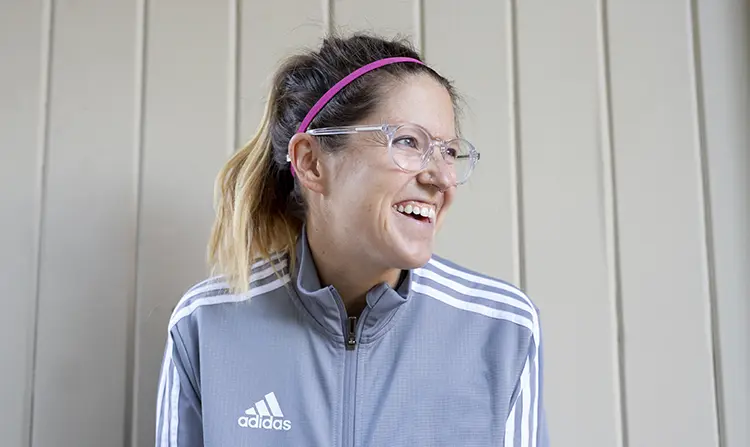
Hi everyone! I’m Jenn and I create content to help female soccer players and coaches maximize individual and team potential by developing healthy mindset skills. Join other subscribers and sign up for the newsletter for all my best tips and advice!
We respect your privacy. Unsubscribe anytime.
